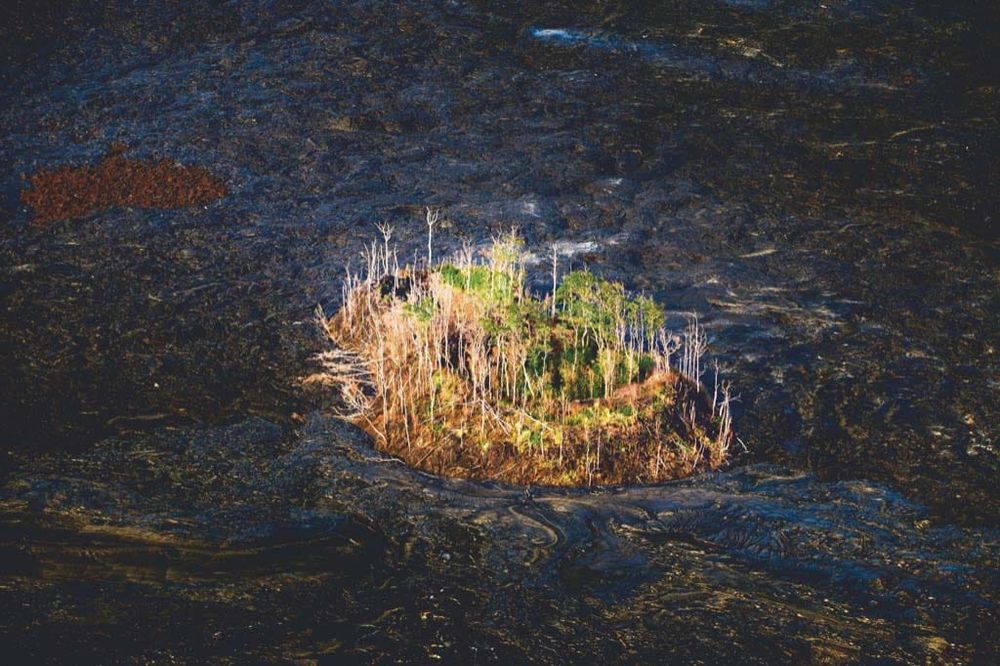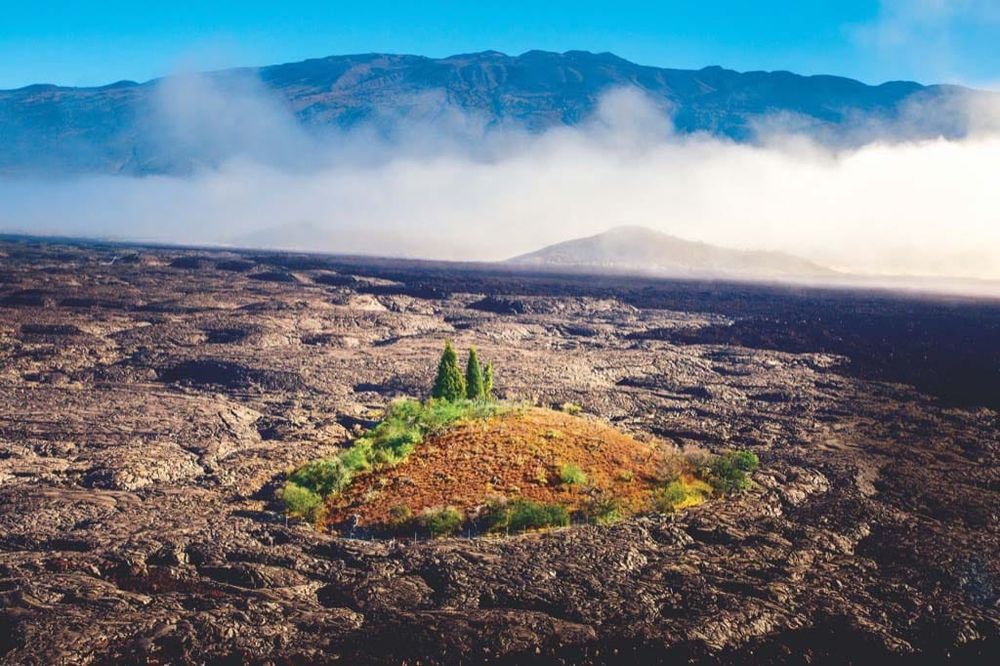They are called kipuka, a word that originated from the Hawaiian language and means a hole or opening.
Photo:Andrew Richard Hara/Hana Hou!
They may also shelter native species from recently invasive ones.
Surrounded by harsh terrain, native plants and animals may be inaccessible to new species that would displace them.
This isolation also foster specificationthe formation of new and distinct species.
Once a kipuka forms, plants and animals that cannot travel long distances on their own become trapped.
Organisms within the isolated kipuka then have a limited gene pool.
And over time, without a larger population to breed with, different genes may become dominant.
Organisms can evolve significantly possibly into entirely new species.




